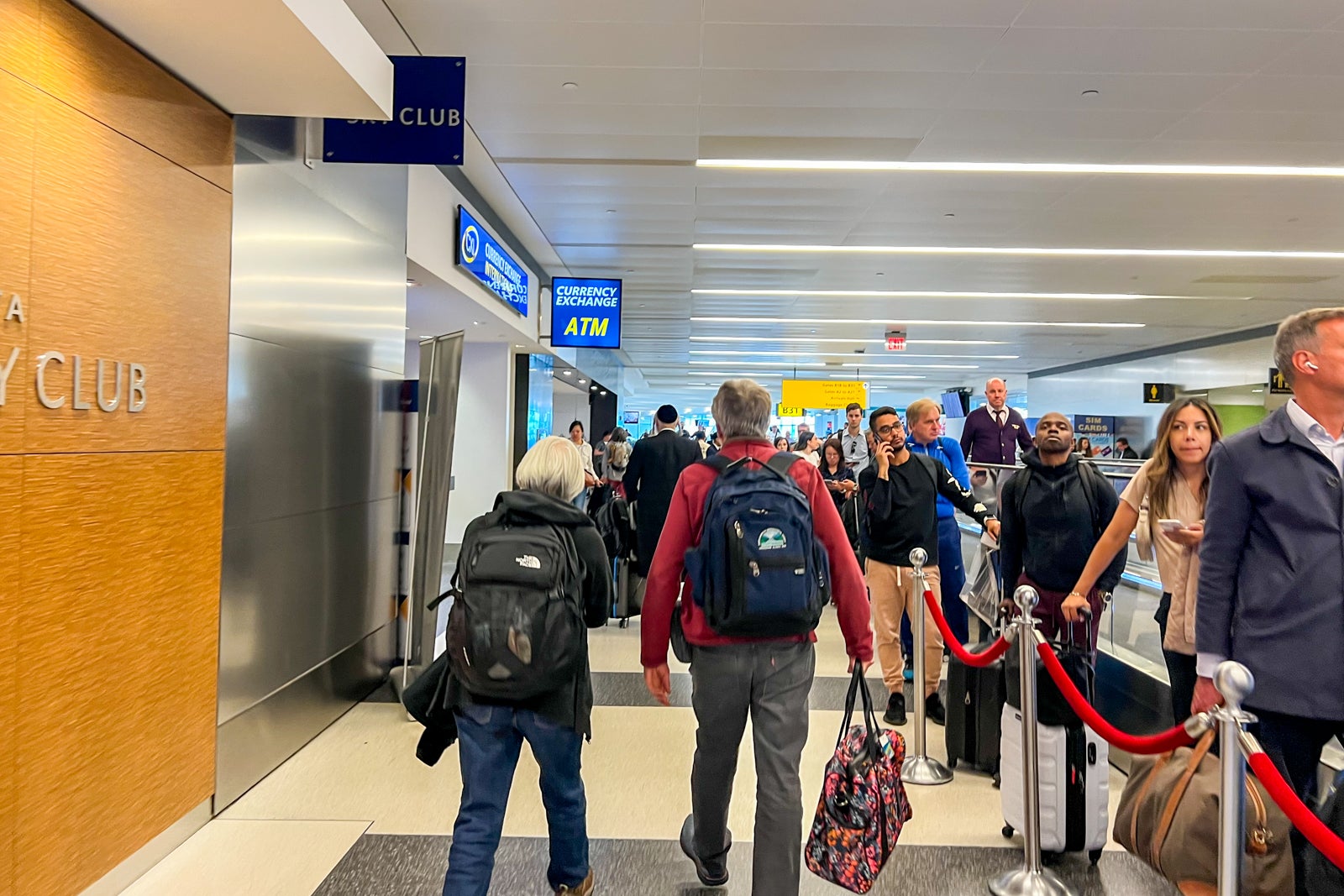In his first public comments since changes to his airline’s frequent flyer program outraged scores of loyalists, Delta Air Lines CEO Ed Bastian admitted that the airline may have overdone the changes, alienating some customers.
“No question, we probably went too far,” Bastian said. “Our team wanted to kind of rip the band-aid off.”
Want more airline-specific news? Sign up for TPG’s free biweekly Aviation newsletter.
Consequentially, Bastian said, the airline was considering walking back some of the changes, but he did not elaborate on what the further changes could look like.
“We’re still assessing what we’ll do, but there will be modifications that we will make, and you’ll hear about it sometime over the next few weeks,” Bastian said.
Bastian’s comments came during a panel at the Atlanta Rotary Club earlier this week.
Earlier this month, Delta announced changes to the SkyMiles Medallion program, which would make Medallion Qualifying Dollars — MQDs — the sole qualifying metric and also significantly raise spending requirements to reach the various levels of status. It would further emphasize spending on Delta credit cards while eliminating requirements linked to taking actual flights with the airline.
Delta simultaneously announced changes to its Sky Club lounge access policies, limiting the number of times premium credit card holders could visit the lounges each year.
While the changes have sparked controversy at levels not often seen and sustained by travelers, Bastian argued that they were necessary in order to effectively serve its most loyal passengers.
“It’s gotten to the point,” he said, “where we have so much demand for our premium products and services that [it’s] far in excess of our ability to serve that effectively,” he said. He cited things like upgrade certificates, lounges and elite member support phone lines.
For instance, Bastian said the ranks of Diamond Medallions — the top published tier in the SkyMiles program — have nearly doubled since before the pandemic.
“All our Diamonds are special, and all of you are special, but we’ve got a lot of you,” he said, “and we had to figure out a way to make certain that we can continue to effectively serve those at the various tiers.”
“I will tell you that we’re listening to the feedback, we’re reading the feedback,” Bastian said. “The feedback matters.”
Ranks of elite members have swelled at various U.S. airlines since the pandemic. This is partly due to waived requirements and benefit rollovers that continued as travel remained depressed; it’s also partly because people began traveling more for work and leisure in the years following the pandemic lockdowns.

It’s created a difficult quandary for airlines: how to continue to reward loyal customers without giving benefits to so many customers that the perks become diluted.
American Airlines similarly changed its frequent flyer program to a purely spend-based system in 2022. Other carriers have discontinued rollover programs and emphasized spending more as part of their programs.
The changes and pressures come as the frequent flyer programs increasingly provide a crucial, high-yield share of airlines’ annual revenues. Banks pay airlines for miles, which they then distribute to customers as credit card spending rewards.
Delta, in particular, has benefited to the tune of billions of dollars annually from its credit card partnership with American Express. While the airline has pushed aggressively to grow its program and the brand, its success has become a double-edged sword: It has harmed the brand as Sky Club lounges became crowded beyond capacity and elite members found perks devalued to the point of being almost worthless.
Still, the overwhelmingly negative reaction to Delta’s changes has laid bare the importance of the program and the brand, Bastian said — something that the airline will consider as it further modifies the program.
“I think we moved too fast, and so we’re looking at it now,” he said. “We will be making modifications and changes because it really matters to us.”
“We’re in a business of serving people and we want everyone to be served at the highest level,” he added. “It’s just way in excess of our current asset base and it’s unsustainable where we’re at now.”




